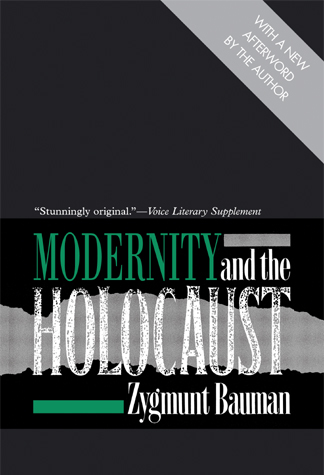 Dr Emmanuelle Tulle shares which books inspired her to become a sociologist, taking us on a tour of Marx and Engels’ classic work to the influence of Claude Lanzmann’s film Shoah.
Dr Emmanuelle Tulle shares which books inspired her to become a sociologist, taking us on a tour of Marx and Engels’ classic work to the influence of Claude Lanzmann’s film Shoah.

By the time I started studying sociology, I had already read Marx and Engels’ Manifesto of the Communist Party and the works of Rousseau. I had also heard of Durkheim. However what really made me understand the distinctiveness of sociology was C. W. Mills’ The Sociological Imagination. This may not seem very original but in his books he makes three key points: 1. that sociology is a humanist discipline, 2. that it can be as rigorous as science, and 3. he explains the difference between personal troubles and problems of milieu. There is not much else you need to understand what makes sociology so inspiring and so inviting to someone who wants to understand the mechanics of society, how they affect the lives, thoughts and actions of individuals and to explore what can be done to alleviate inequalities.
 Another key book was Berger and Luckman’s The Social Construction of Reality. However I didn’t think I deserved the title of sociologist until I had started working as a social science researcher and read Zygmunt Bauman’s Modernity and the Holocaust. Bauman’s forensic analysis of the industrial processes which made mass killing possible, enlisting the cooperation of so many ordinary people, read several years after watching Claude Lanzmann’s film Shoah, demonstrated that sociology can be as engrossing as art, that it can produce documents which explain what previously would have been seen as inexplicable, the work of mad leaders, an aberration. This book was a revelation.
Another key book was Berger and Luckman’s The Social Construction of Reality. However I didn’t think I deserved the title of sociologist until I had started working as a social science researcher and read Zygmunt Bauman’s Modernity and the Holocaust. Bauman’s forensic analysis of the industrial processes which made mass killing possible, enlisting the cooperation of so many ordinary people, read several years after watching Claude Lanzmann’s film Shoah, demonstrated that sociology can be as engrossing as art, that it can produce documents which explain what previously would have been seen as inexplicable, the work of mad leaders, an aberration. This book was a revelation.
I’m afraid that there has not been one single piece of writing in the last 5 years which stands out as a must read, although Richard Jenkins’ 3rd edition of Social Identities is a strong contender. It’s a good read and the scholarship is impressive. It has a clear thesis (about similarity and difference) driving the analysis along so there’s a great unity to it.
What do I read in my spare time? A lot of things! Sometimes on holiday I read the sociology I don’t have the energy to read the rest of the time (books on walking for instance). I also read works of history or science for a lay public and more recently I’ve started reading sport autobiographies. And of course, as my first undergraduate degree was in English and American literature, I read fiction, both in English and French. I’ve just finished reading Journal d’un corps (Diary of a Body) by Daniel Pennac which has been engrossing.
Incidentally I am a sociologist of ageing (and now I also work in the area of sport and ageing), but I didn’t encounter a truly inspiring book about ageing until I read Stephen Katz’ book Disciplining Old Age published in 1996 (I think).
——————————————————————————————-
Dr Emmanuelle Tulle is Senior Lecturer in Sociology in the Department of Social Sciences, Media and Journalism at Glasgow Caledonian University. In her 19 years as an academic, she has developed an interest in ageing, more specifically experiences of bodily ageing and their mediation by cultural and structural processes. Her main concern is a humanist one – to find ways of challenging the cultural and social marginalisation of older people, without rejecting old age, in a wider culture which praises youthfulness and a politico-economic climate in which old age is perceived as a problem and a burden. She seeks through her work to give voice to people of a certain age, to make visible the complexity and richness of ageing experiences and to expose the barriers which mask these experiences from view. She is the author of numerous academic articles and of a book, Ageing, the Body and Social Change, which explores the experiences of older elite runners.




